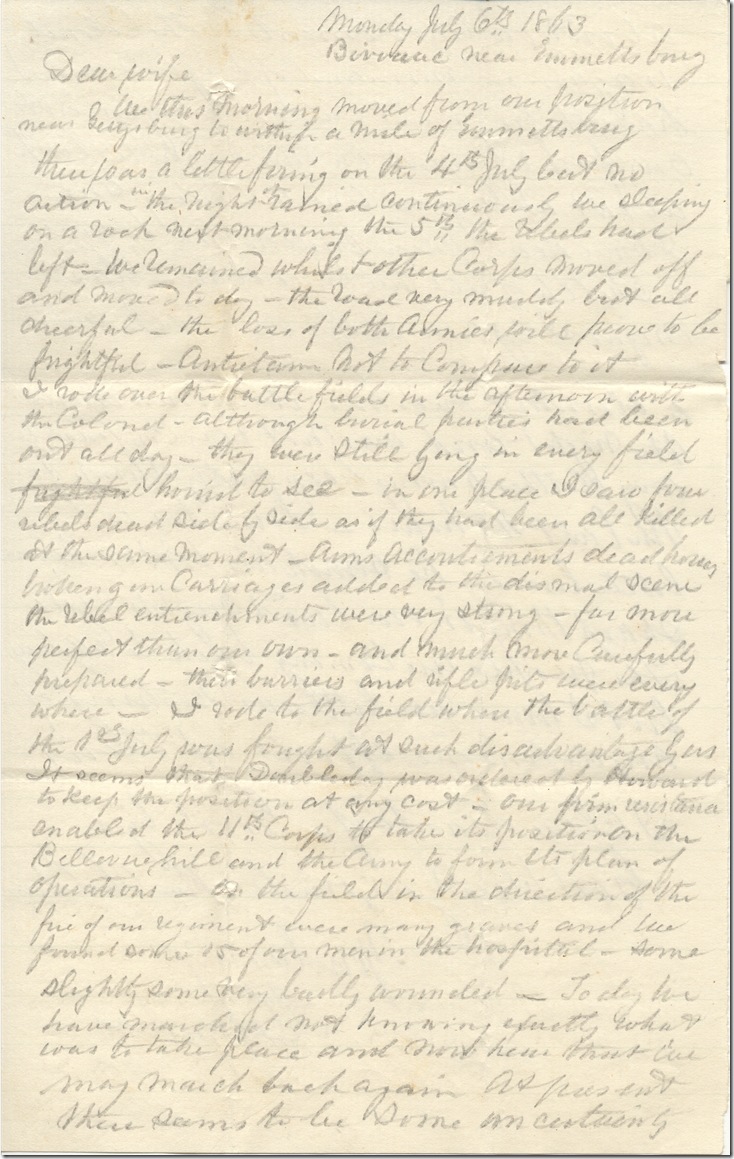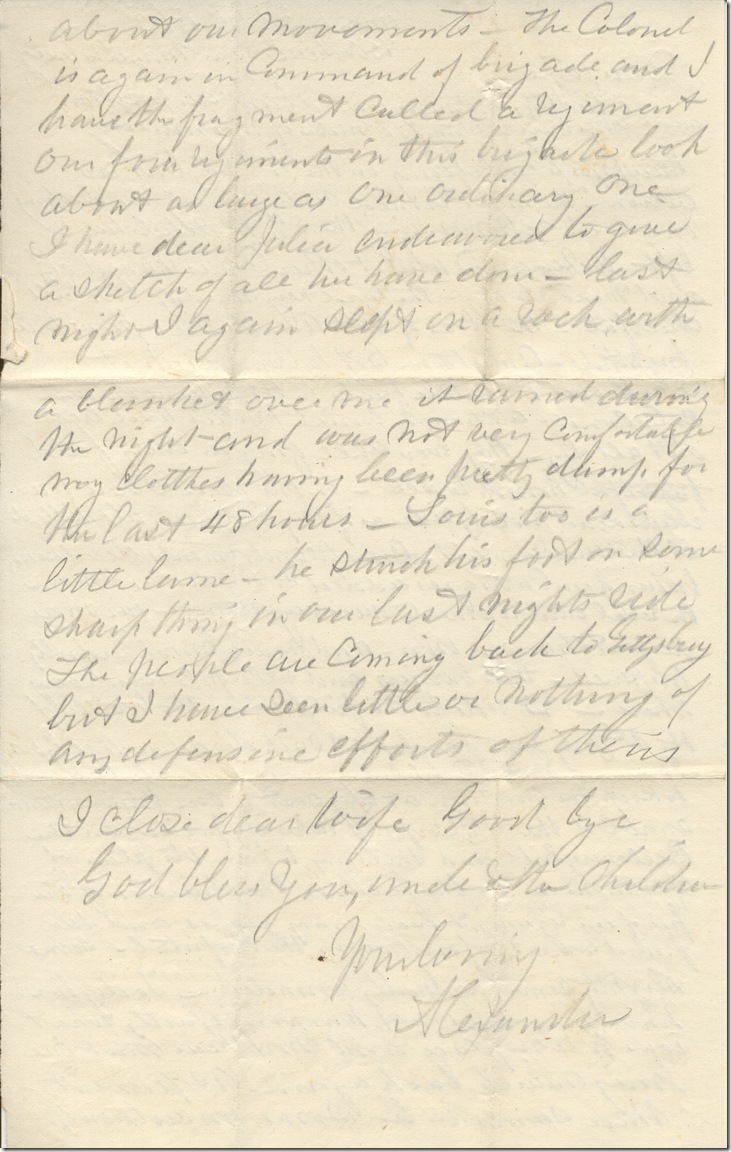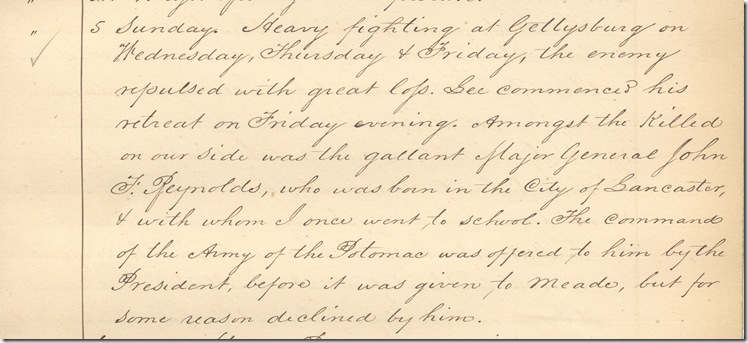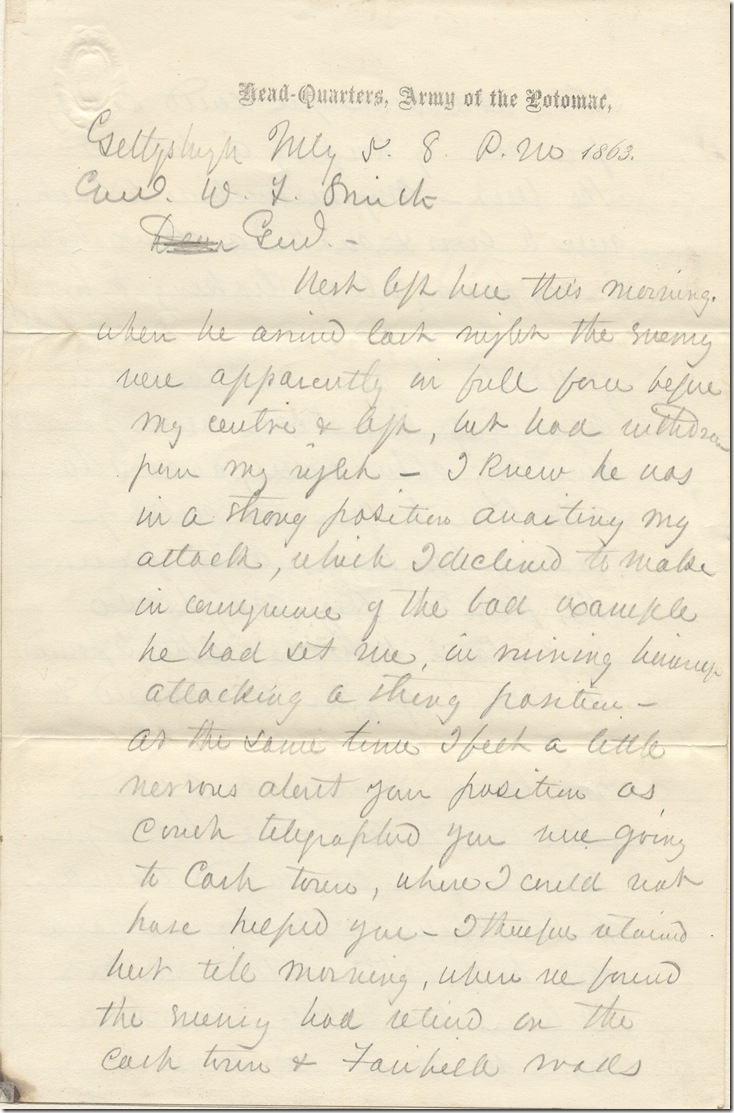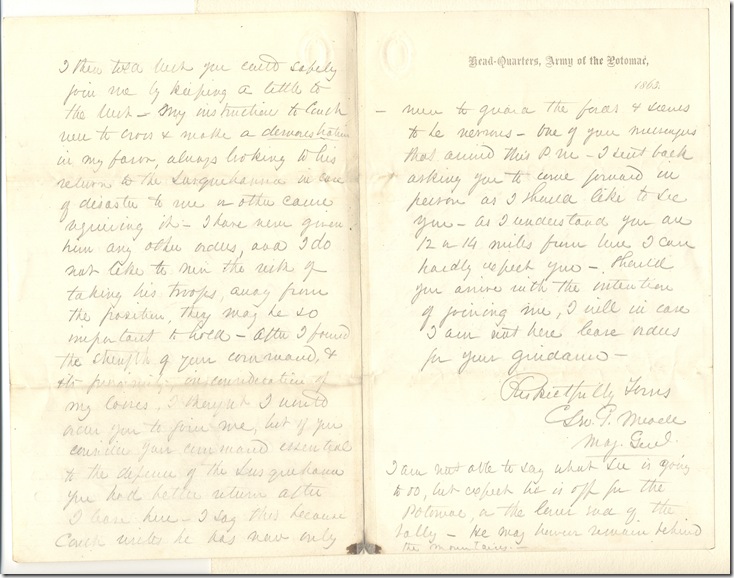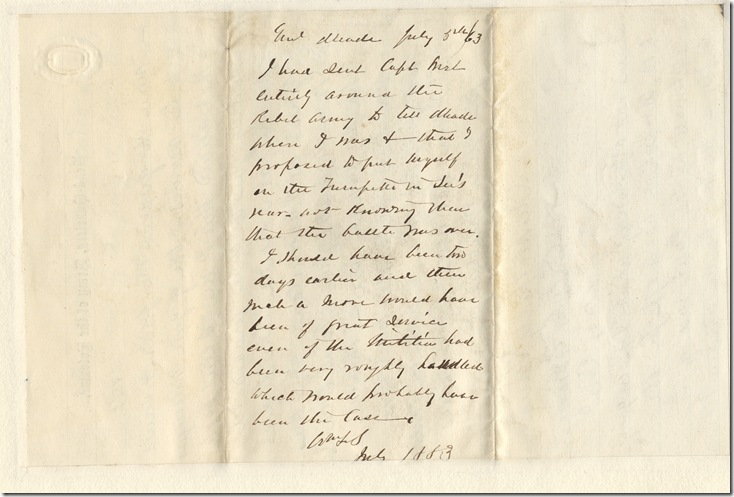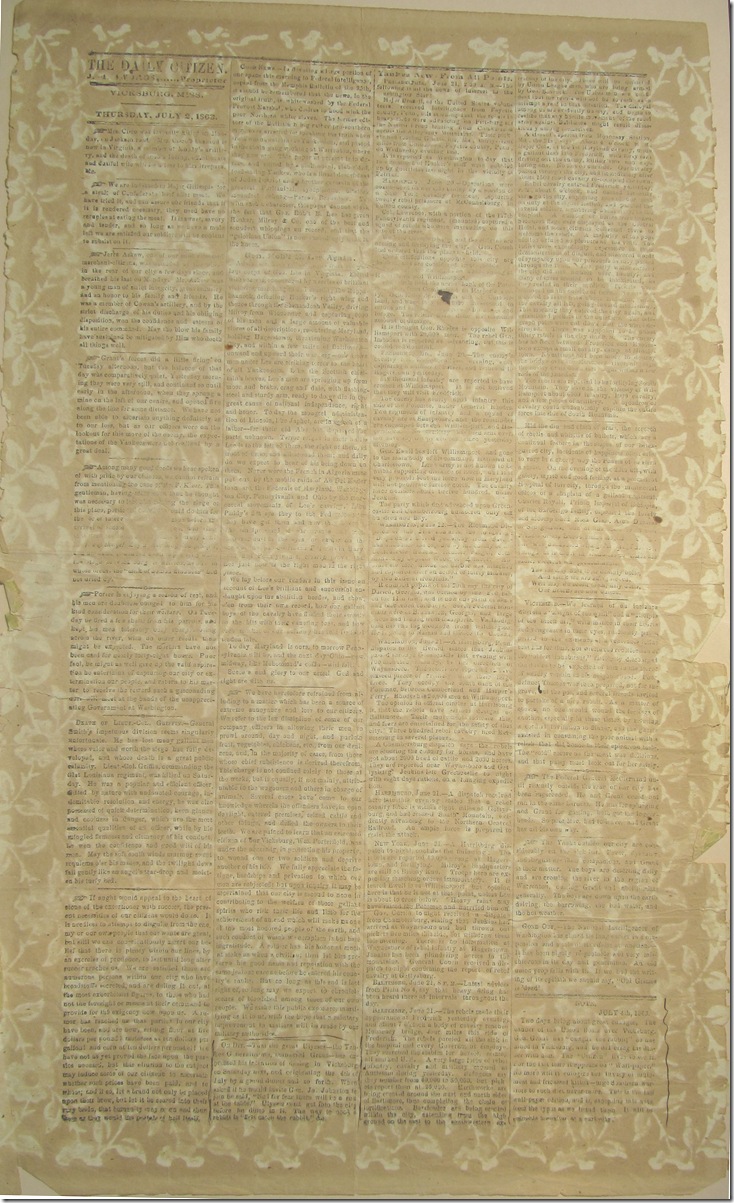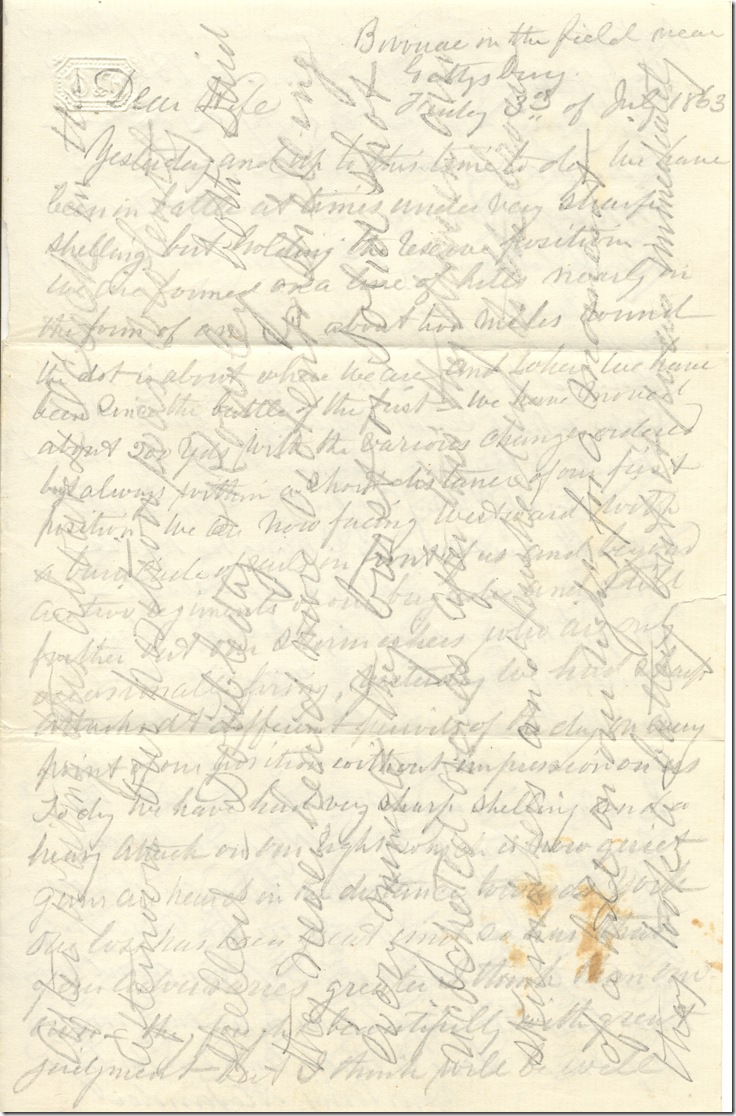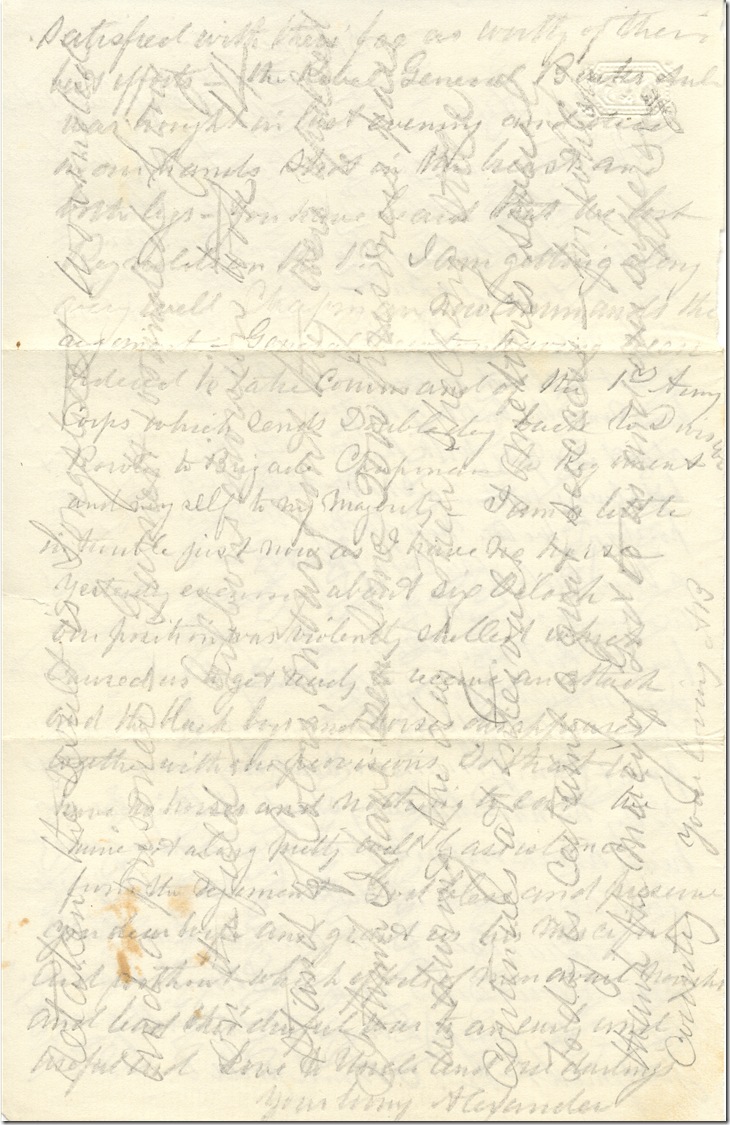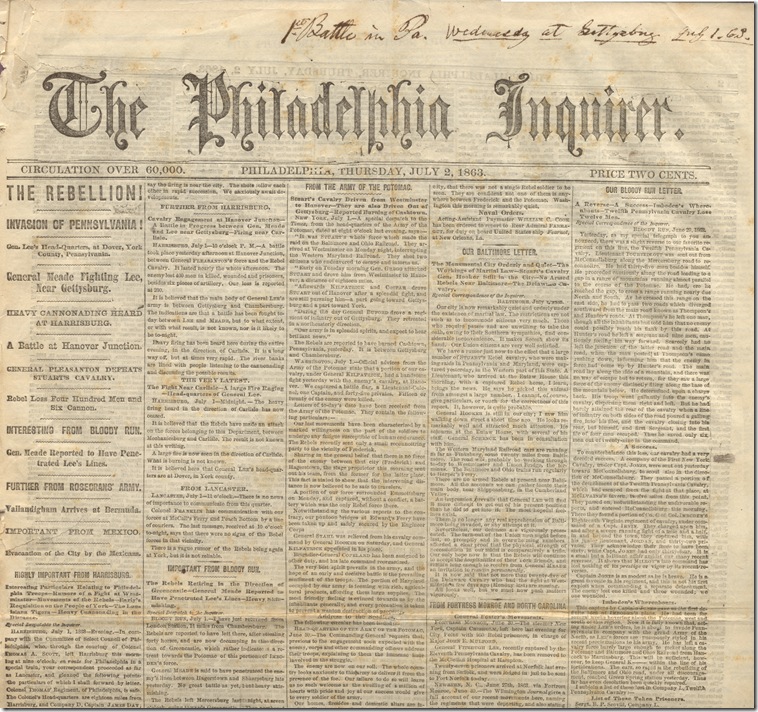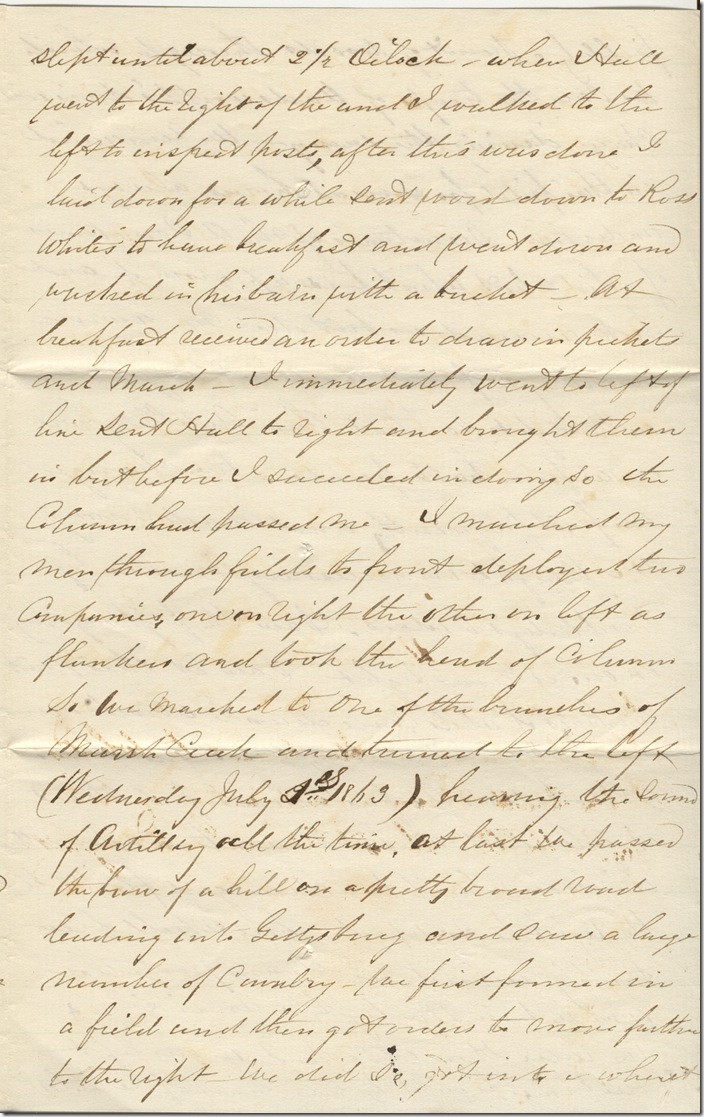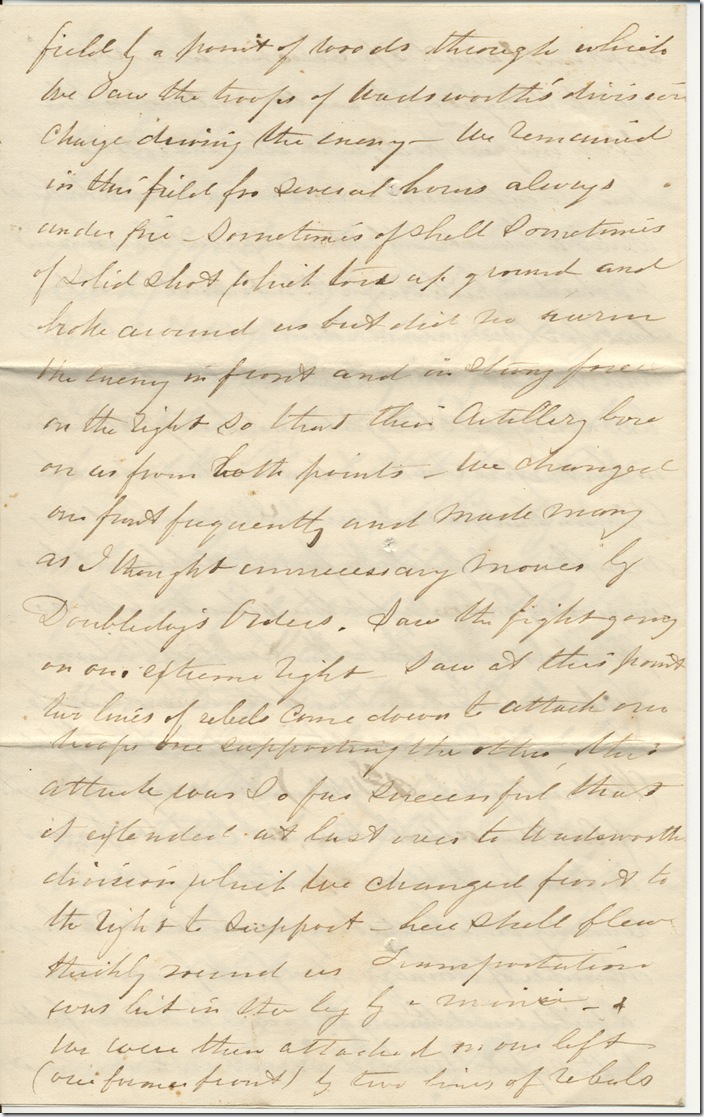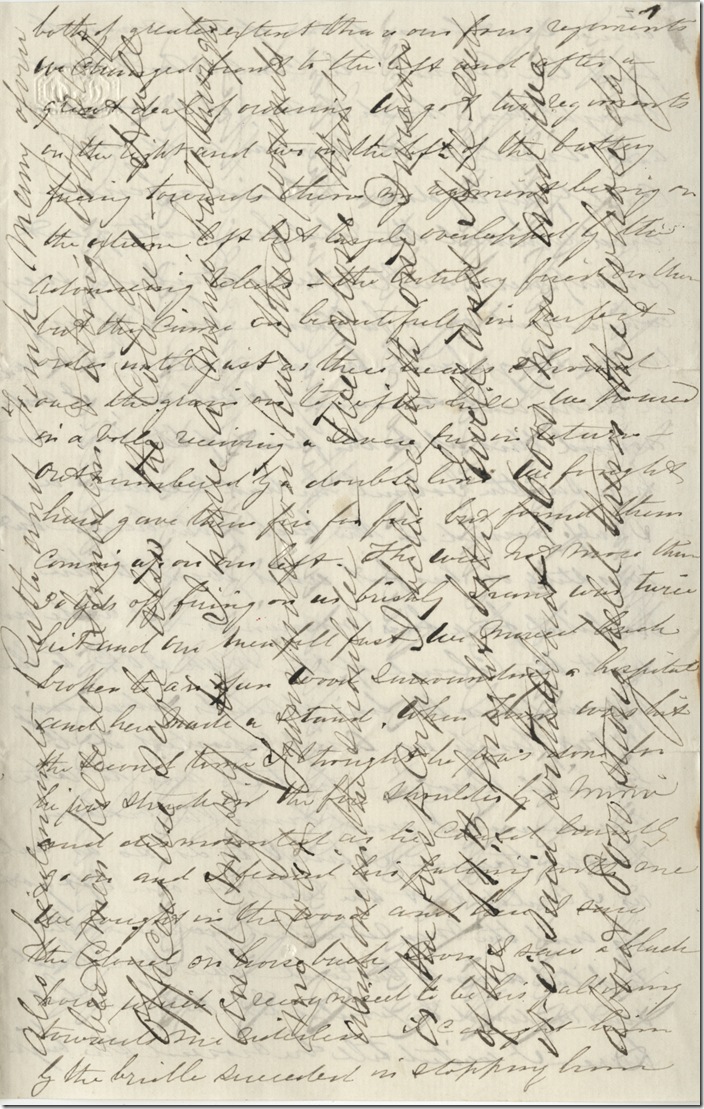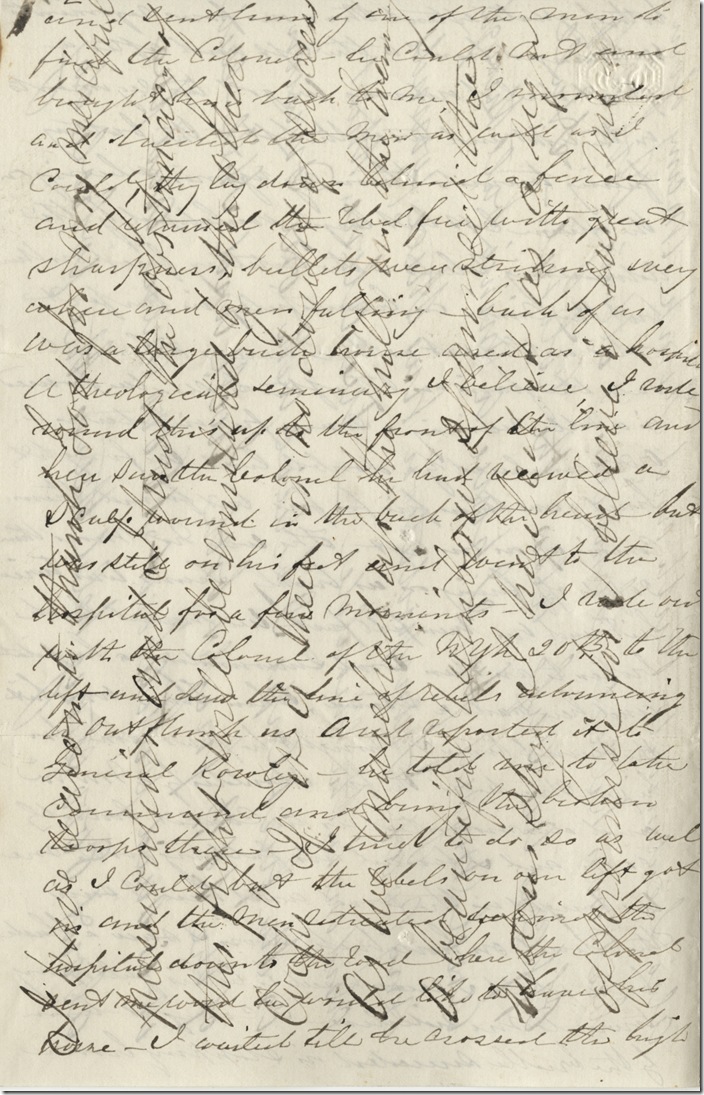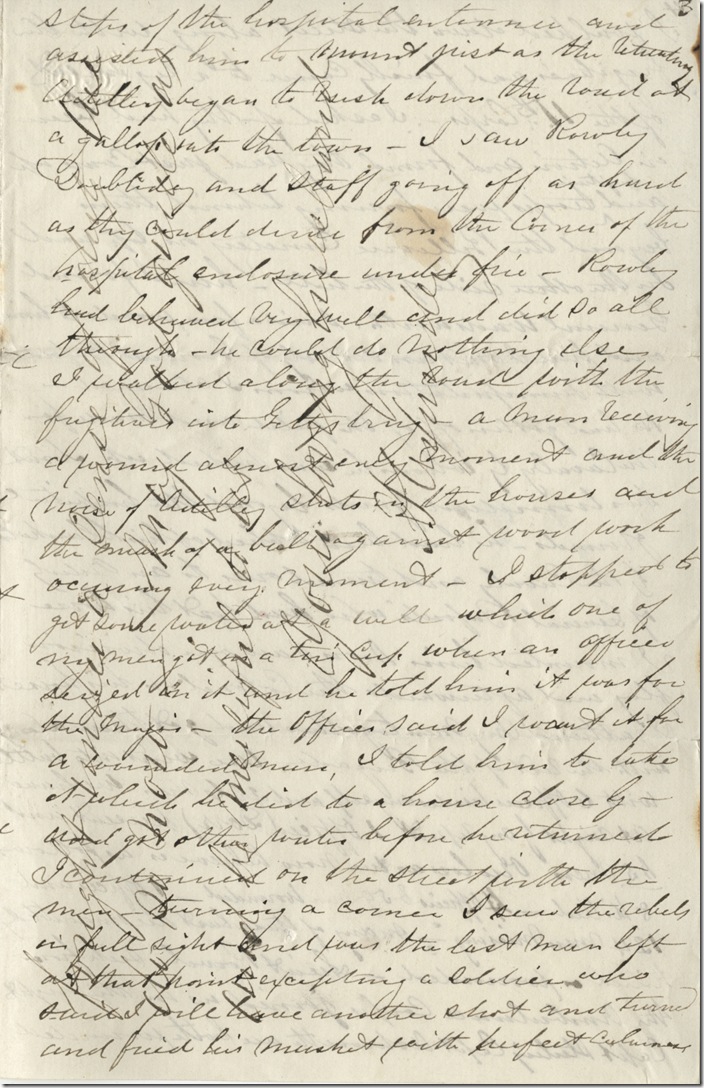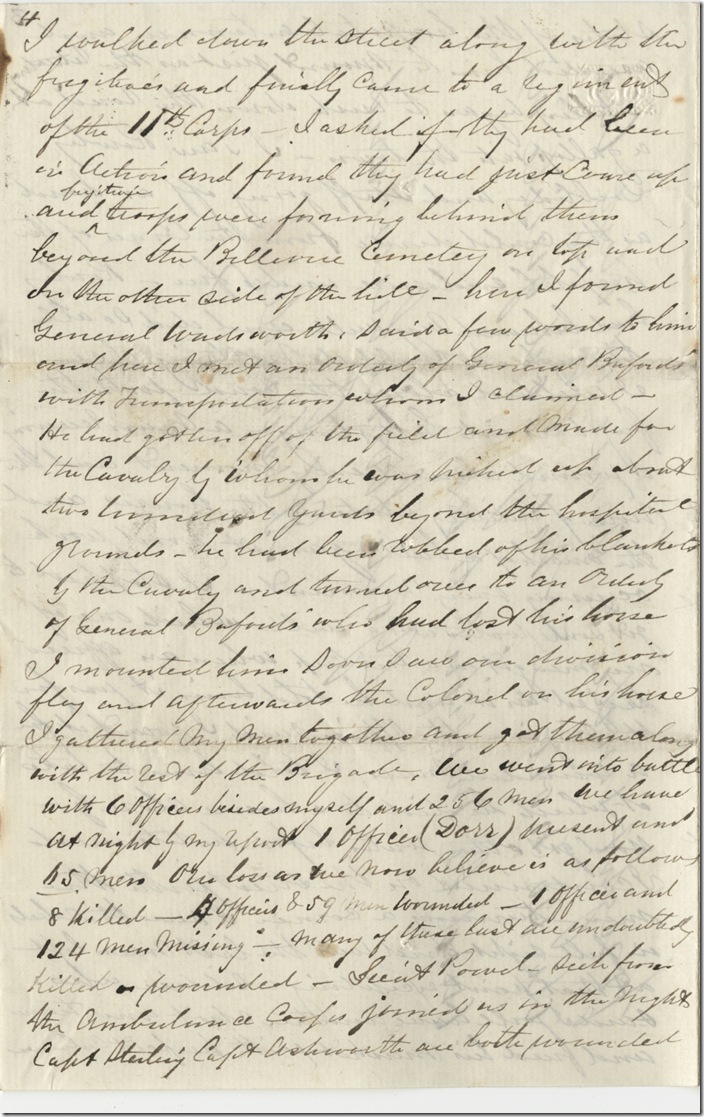Alexander Biddle was a member of the prominent Philadelphia Biddle family and was married to Julia Williams Rush, the granddaughter of Dr. Benjamin Rush. Biddle served with the 121st Pennsylvania Volunteer Infantry, beginning in September 1862. Starting out as a major, he would participate in Fredericksburg and Gettysburg, among other engagements, and would leave the service as a lieutenant colonel. (He was commissioned, but never mustered, as colonel) 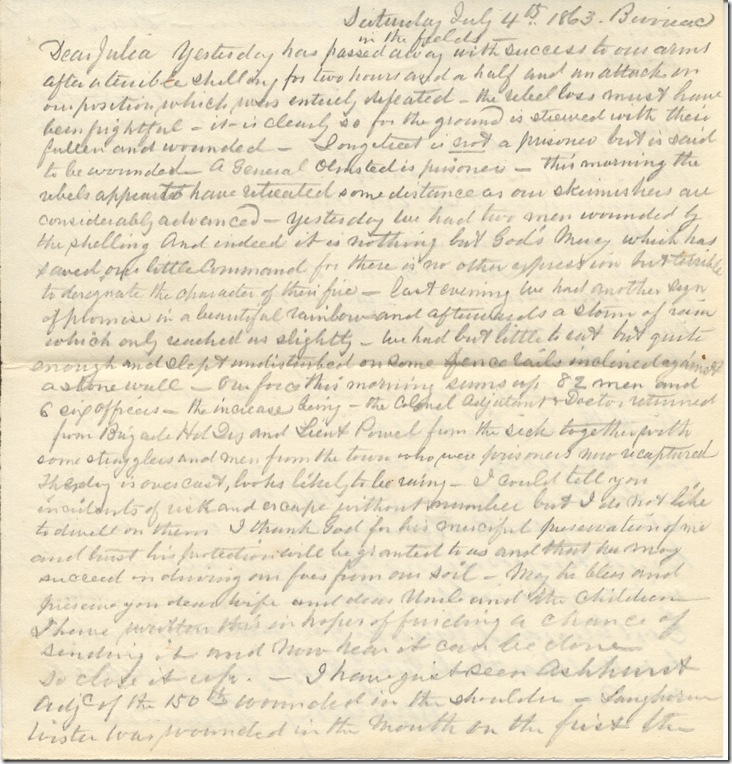
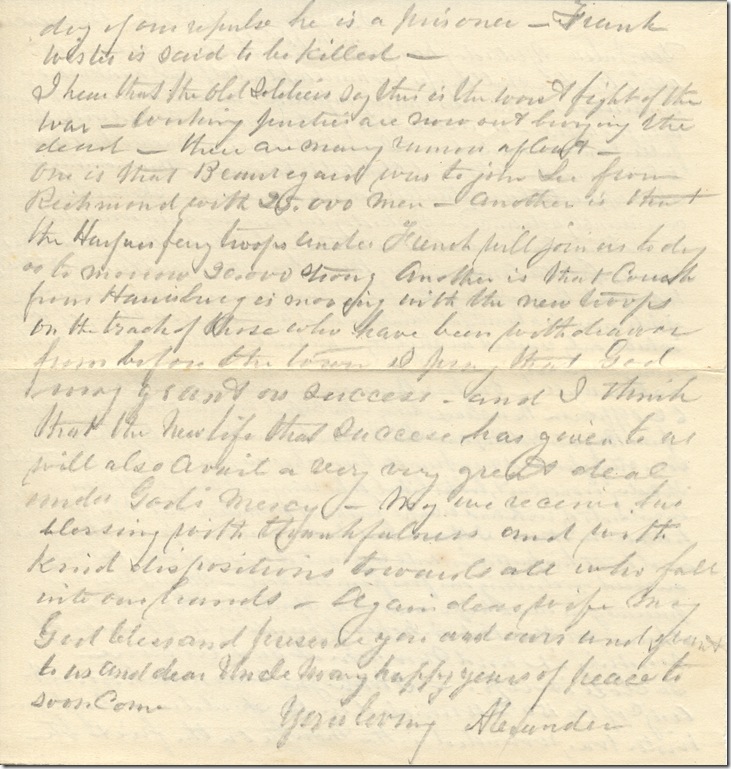
Transcript:
Saturday July 4th 1863. Bivouac in the field —
Dear Julia
Yesterday has passed away with success to our arms after a terrible shelling for two hours and a half and an attack on our position which was entirely defeated – the rebel loss must have been frightful – it is clearly so for the ground is strewed with their fallen and wounded – Longstreet is not a prisoner but is said to be wounded – A General Olmstead is prisoner– This morning the rebels appear to have retreated some distance as our skirmishers are considerably advanced – yesterday we had two men wounded by the shelling and indeed it is nothing but God’s Mercy which has saved our little command for there is no other expression but terrible to designate the character of their fire – last evening we had another sign of promise in a beautiful rainbow and afterwards a storm of rain which only reached us slightly – We had but little to eat but quite enough and slept undisturbed on some fence rails inclined against a stone wall – Our force this morning sums up 82 men and 6 officers – the increase being – the Colonel, Adjutant & Doctor returned from Brigade Hd Qrs and Lieut Powel from the sick, together with some stragglers and men from the town who were prisoners now recaptured. The day is overcast, looks likely to be rainy – I could tell you incidents of risk and escape without number but I do not like to dwell on them I thank God for his merciful preservation of me and trust his protection will be granted to us and that we may succeed in driving our foes from our soil– May he bless and preserve you dear wife and dear Uncle and the children. I have written this in hopes of finding a chance of sending it and now hear it can be done so close it up.– I have just seen Ashhurst, Adjt of the 150th, wounded in the shoulder – Langhorne Wister was wounded in the mouth on the first the day of our repulse he is a prisoner– Frank Webster is said to be killed–
I hear that the old soldiers say this is the worst fight of the war – working parties are now out burying the dead – there are many rumors afloat – one is that Beauregard was to join Lee from Richmond with 25,000 men – another is that the Harpers ferry troops under French will join us to day or to morrow, 20,000 strong, another is that Couch from Harrisburg is moving with the new troops on the track of those who have been withdrawn from before the town I pray that God may grant us success – and I think that the new life that success has given to us will also avail a very very great deal under God’s mercy– May we receive due blessing with thankfulness and with kind dispositions to avail all who fall into our hands– Again dear wife may God bless and preserve you and ours and grant to us and dear Uncle many happy years of peace to soon come
Your loving Alexander
Citation: Alexander Biddle (1819-1899), autograph letter signed to Julia Williams Rush Biddle, 4 July 1863. Rush IV:30:33

